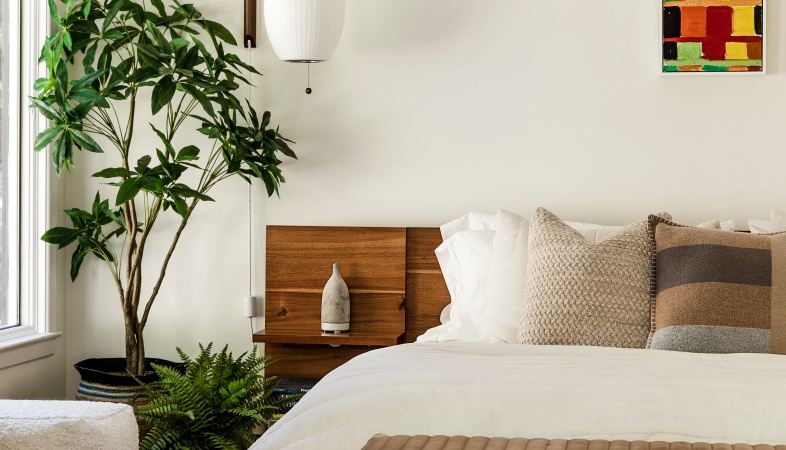Bedroom Feng Shui: Creating Harmonious Spaces for Rest and Relaxation
Incorporating Feng Shui principles can enhance the overall ambiance and energy flow in the bedroom, promoting better sleep and relaxation.

Creating a harmonious bedroom environment conducive to rest
and relaxation is essential for promoting overall well-being and rejuvenation.
Feng Shui, an ancient Chinese practice, offers valuable insights into arranging
furniture, selecting colors, and enhancing energy flow to optimize the
atmosphere in your bedroom. In this article, we will explore how to apply Feng
Shui principles to create a peaceful and balanced space for restorative sleep
and relaxation.
One fundamental aspect of bedroom Feng Shui is the placement of the bed. According to Feng Shui principles, the bed should be positioned diagonally across from the door, allowing for a clear view of the entrance while lying in bed. This placement is believed to promote a sense of security and command, enhancing feelings of relaxation and peace of mind.
Additionally, it's essential to avoid placing the bed directly in line with the door or under a window, as these positions are thought to disrupt the flow of energy, known as Qi, and create a sense of vulnerability. Instead, position the bed against a solid wall for stability and support, symbolizing a strong foundation for restful sleep.
Incorporating elements of nature into the bedroom can also contribute to a calming and rejuvenating atmosphere. Choose natural materials such as wood, cotton, and linen for furniture and bedding to create a connection with the earth element. Introduce living plants or fresh flowers to purify the air and promote positive energy flow, fostering a sense of vitality and renewal.
Color plays a significant role in influencing mood and energy levels in the bedroom. In Feng Shui, soft, soothing colors such as light blues, gentle greens, and subtle neutrals are recommended for creating a serene and tranquil environment conducive to relaxation. Avoid using overly vibrant or stimulating colors, as they may disrupt the sense of calm and hinder sleep quality.
Another essential aspect of bedroom Feng Shui is minimizing clutter and creating a sense of spaciousness. Cluttered and disorganized spaces can obstruct the flow of energy and create feelings of stress and anxiety. Practice decluttering regularly, keeping surfaces clear and organized to promote a sense of peace and serenity in the bedroom.
Incorporating soft lighting fixtures and natural light sources can also enhance the ambiance of the bedroom and support relaxation. Opt for adjustable lighting options that allow you to control the brightness and create a warm and inviting atmosphere. Avoid harsh overhead lighting and opt for soft, diffused light sources such as table lamps, sconces, or candles to create a cozy and intimate environment.
Finally, consider the placement of mirrors in the bedroom, as they can either amplify or diminish the energy in the space. According to Feng Shui principles, mirrors should be positioned to reflect something beautiful or uplifting, such as a piece of artwork or a scenic view, rather than directly facing the bed. Mirrors should also be used sparingly to prevent excessive energy reflection and promote restful sleep.
Incorporating Feng Shui principles into bedroom design can help create a harmonious and balanced environment that promotes rest and relaxation. By paying attention to the placement of furniture, color scheme, use of natural elements, and overall organization, you can transform your bedroom into a sanctuary of peace and tranquility conducive to restorative sleep and rejuvenation.
.png)








 at JLL India.jpeg)




















